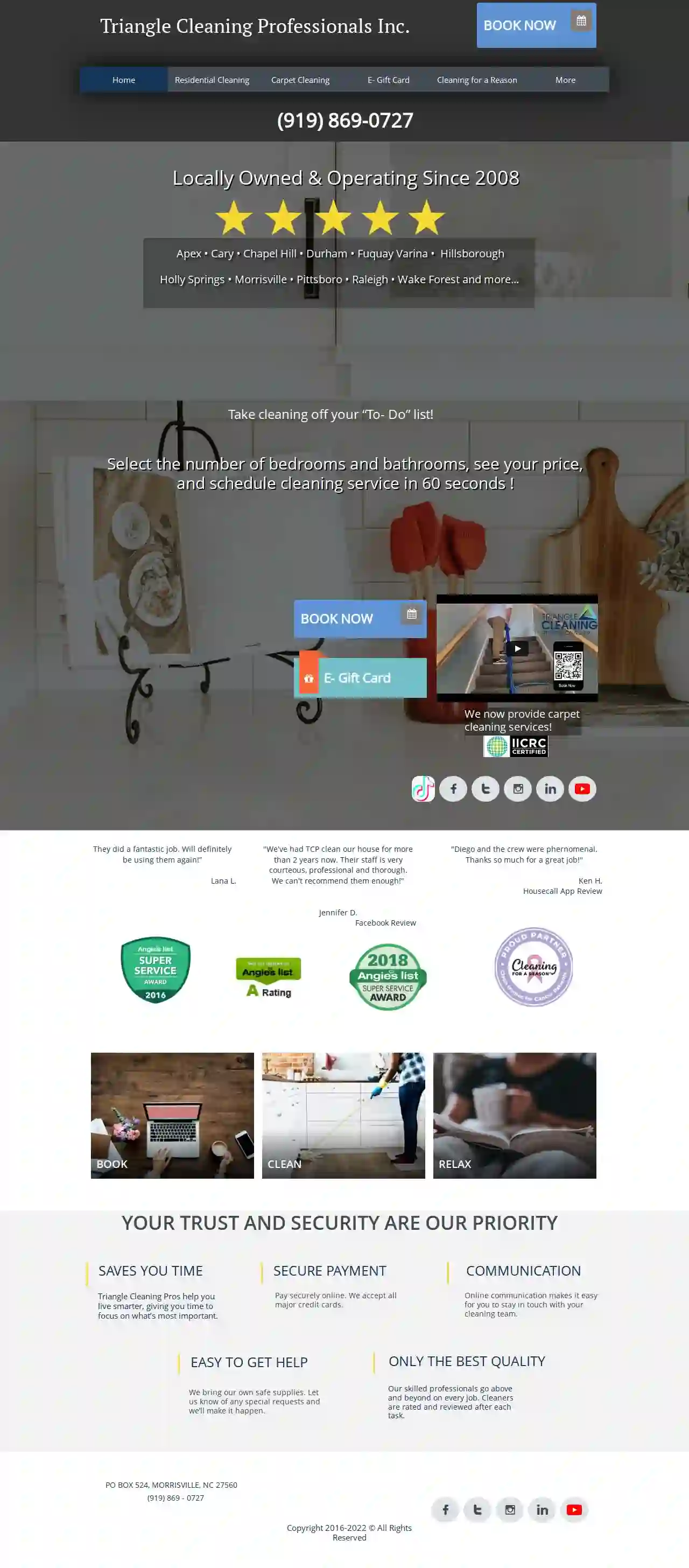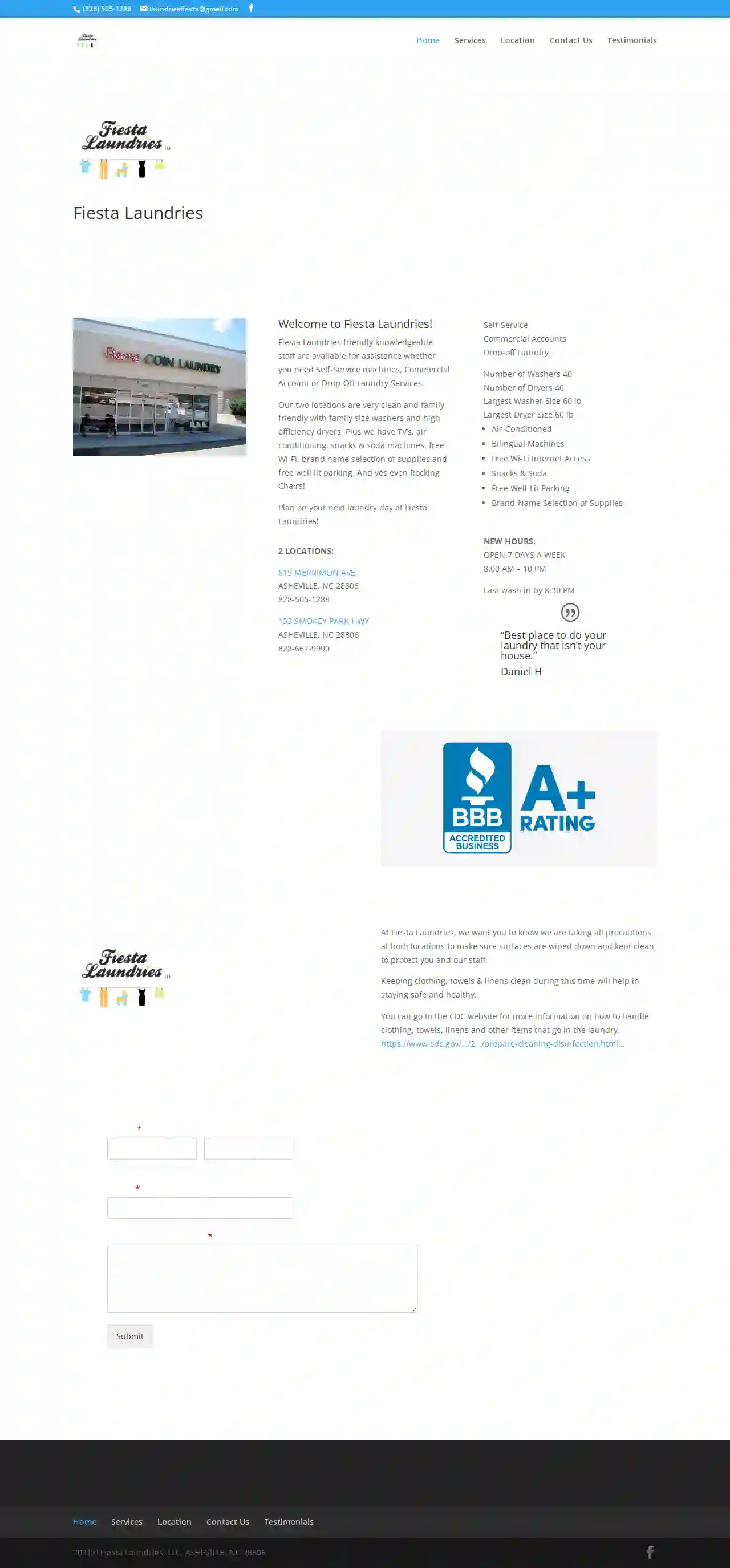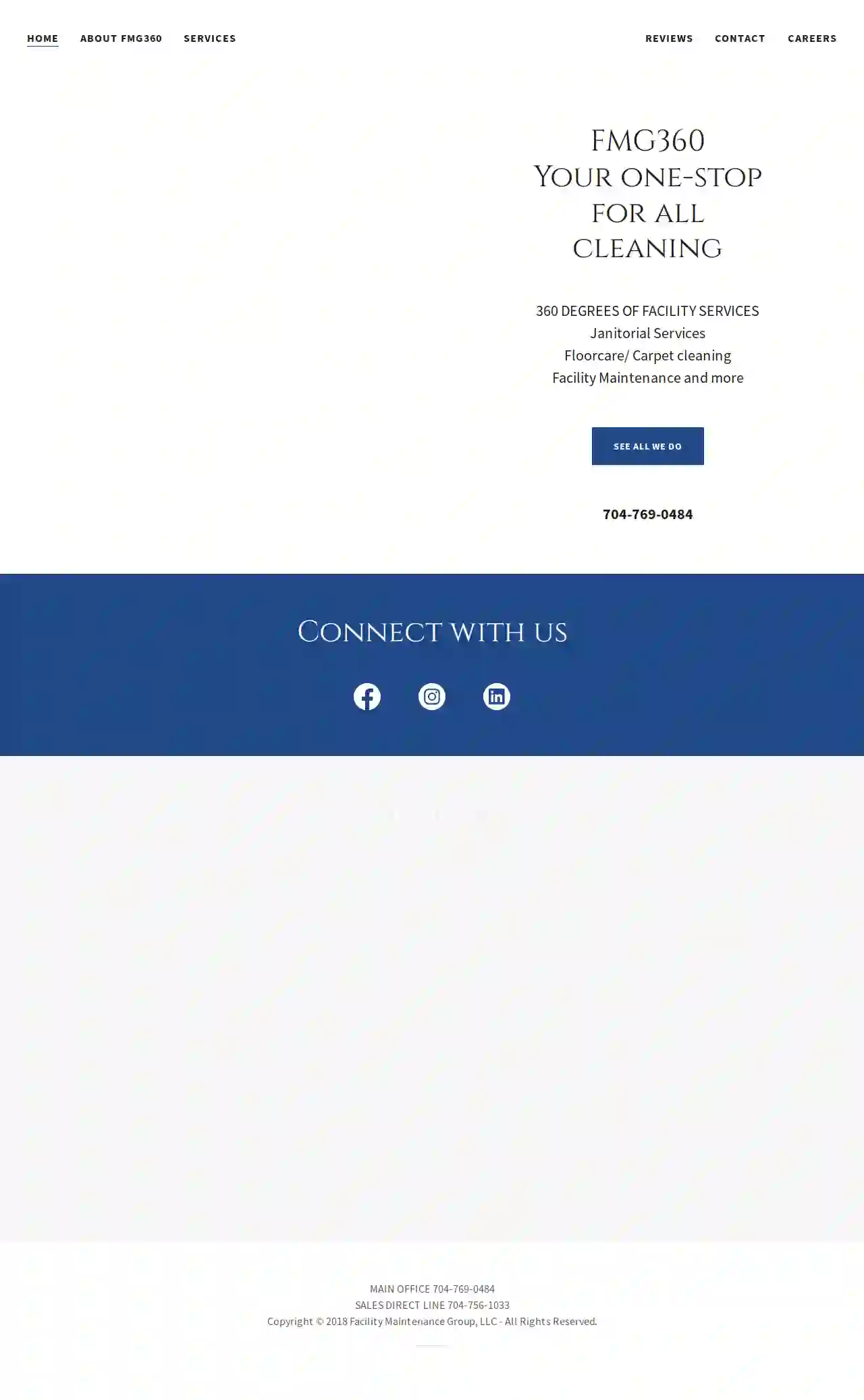Cleaning Services Wilson
Top 10 Home Cleaning in Wilson
Get up to 3 Cleaning Companies quotes for your project today! Compare profiles, reviews, accreditations, portfolio, etc... and choose the best deal.
Service Needed
City or Town

Time Genies Concierge & Errand Service
4.844 reviewsHickory, US- Services
- Why Us?
- Gallery
Get Quote
Veritas Environmental Services
4.99 reviewsHigh Point, US- Services
- Why Us?
- Gallery
Get Quote
Triangle Cleaning Professionals
4.678 reviewsRaleigh, US- Services
- Why Us?
Get Quote
Magic Touch Commercial Cleaning
518 reviewsJacksonville, US- Services
- Why Us?
Get Quote
Fiesta Laundries
4.3172 reviewsAsheville, US- Services
- Why Us?
Get Quote
Enviro-Master of Raleigh
5327 reviewsRaleigh, US- Services
- Why Us?
Get Quote
Legendary Cleaning Services
541 reviewsCharlotte, US- Services
- Why Us?
Get Quote
Maids of Jacksonville FL
4.838 reviewsJacksonville, US- Services
- Why Us?
Get Quote
FMG360 (Facility Maintenance Group)
526 reviewsGastonia, US- Services
- Why Us?
Get Quote- Qu
Quality Cleaning Service
4.711 reviewsHickory, US- Services
- Why Us?
Get Quote
Over 60,241+ Cleaning Contractors on our platform
Our cleaning companies operate in Wilson and surrounding areas!
CleaningMatch has curated and vetted the Best Cleaning Services in Wilson. Find a top & trustworthy contractor today.
Frequently Asked Questions About Cleaning Services
Find answers to common questions about cleaning services and hiring cleaning companies in the USA.
- Type of cleaning: Deep cleaning, regular cleaning, move-in/move-out cleaning, and specialized cleaning (e.g., carpet cleaning) have different price points.
- Size of the property: Larger properties typically require more time and resources, resulting in higher costs.
- Frequency of cleaning: Regular cleaning schedules often have discounted rates compared to one-time services.
- Location: Cleaning costs can differ based on regional labor costs and demand.
- Additional services: Extra tasks, such as window cleaning, laundry, or organization, will add to the overall price.
- Experience and a proven track record: Choose companies with a solid history of providing quality cleaning services.
- Positive customer reviews and testimonials: Check online reviews and ratings to gauge customer satisfaction.
- Licensed and insured professionals: Ensure the company has the necessary licenses and insurance to protect you from liability.
- Clear and transparent pricing: Obtain detailed quotes and compare prices from multiple companies.
- Good communication and responsiveness: Choose a company that communicates clearly, responds promptly, and addresses your concerns.
- Cleaning: Removing dirt, dust, and debris from surfaces using soap or detergent and water. It improves the appearance and removes visible contaminants.
- Sanitizing: Reducing the number of bacteria on surfaces to a safe level. It uses chemical disinfectants or heat to kill or inactivate bacteria.
- Disinfecting: Killing or inactivating most disease-causing microorganisms on surfaces. It uses stronger chemical disinfectants than sanitizing and targets a wider range of pathogens.
How much do cleaning services cost in the USA?
Cleaning service costs in the USA vary based on several factors, including:
To get accurate pricing, request personalized quotes from reputable cleaning services on CleaningMatch. They will assess your specific needs and provide a tailored cost estimate.
To get accurate pricing, request personalized quotes from reputable cleaning services on CleaningMatch. They will assess your specific needs and provide a tailored cost estimate.
How do I find a good cleaning service?
Finding a reputable cleaning service requires research and due diligence. Look for companies with:
Utilize online directories like CleaningMatch to find and compare qualified cleaning services in your area.
Utilize online directories like CleaningMatch to find and compare qualified cleaning services in your area.
Do I need to provide cleaning supplies for the cleaning service?
Most professional cleaning services provide their own cleaning supplies and equipment, including vacuums, mops, cleaning solutions, and microfiber cloths. However, it's always best to confirm this with the company before hiring them.
If you have specific preferences for cleaning products, such as eco-friendly or hypoallergenic options, communicate those to the cleaning service. They may accommodate your requests or allow you to provide your preferred supplies.
If you have specific preferences for cleaning products, such as eco-friendly or hypoallergenic options, communicate those to the cleaning service. They may accommodate your requests or allow you to provide your preferred supplies.
What is the difference between cleaning, sanitizing, and disinfecting?
While often used interchangeably, cleaning, sanitizing, and disinfecting have distinct meanings:
Cleaning is usually the first step, followed by sanitizing or disinfecting depending on the level of hygiene required.
Cleaning is usually the first step, followed by sanitizing or disinfecting depending on the level of hygiene required.
How much do cleaning services cost in the USA?
Cleaning service costs in the USA vary based on several factors, including:
To get accurate pricing, request personalized quotes from reputable cleaning services on CleaningMatch. They will assess your specific needs and provide a tailored cost estimate.
- Type of cleaning: Deep cleaning, regular cleaning, move-in/move-out cleaning, and specialized cleaning (e.g., carpet cleaning) have different price points.
- Size of the property: Larger properties typically require more time and resources, resulting in higher costs.
- Frequency of cleaning: Regular cleaning schedules often have discounted rates compared to one-time services.
- Location: Cleaning costs can differ based on regional labor costs and demand.
- Additional services: Extra tasks, such as window cleaning, laundry, or organization, will add to the overall price.
To get accurate pricing, request personalized quotes from reputable cleaning services on CleaningMatch. They will assess your specific needs and provide a tailored cost estimate.
How do I find a good cleaning service?
Finding a reputable cleaning service requires research and due diligence. Look for companies with:
Utilize online directories like CleaningMatch to find and compare qualified cleaning services in your area.
- Experience and a proven track record: Choose companies with a solid history of providing quality cleaning services.
- Positive customer reviews and testimonials: Check online reviews and ratings to gauge customer satisfaction.
- Licensed and insured professionals: Ensure the company has the necessary licenses and insurance to protect you from liability.
- Clear and transparent pricing: Obtain detailed quotes and compare prices from multiple companies.
- Good communication and responsiveness: Choose a company that communicates clearly, responds promptly, and addresses your concerns.
Utilize online directories like CleaningMatch to find and compare qualified cleaning services in your area.
Do I need to provide cleaning supplies for the cleaning service?
Most professional cleaning services provide their own cleaning supplies and equipment, including vacuums, mops, cleaning solutions, and microfiber cloths. However, it's always best to confirm this with the company before hiring them.
If you have specific preferences for cleaning products, such as eco-friendly or hypoallergenic options, communicate those to the cleaning service. They may accommodate your requests or allow you to provide your preferred supplies.
If you have specific preferences for cleaning products, such as eco-friendly or hypoallergenic options, communicate those to the cleaning service. They may accommodate your requests or allow you to provide your preferred supplies.
What is the difference between cleaning, sanitizing, and disinfecting?
While often used interchangeably, cleaning, sanitizing, and disinfecting have distinct meanings:
Cleaning is usually the first step, followed by sanitizing or disinfecting depending on the level of hygiene required.
- Cleaning: Removing dirt, dust, and debris from surfaces using soap or detergent and water. It improves the appearance and removes visible contaminants.
- Sanitizing: Reducing the number of bacteria on surfaces to a safe level. It uses chemical disinfectants or heat to kill or inactivate bacteria.
- Disinfecting: Killing or inactivating most disease-causing microorganisms on surfaces. It uses stronger chemical disinfectants than sanitizing and targets a wider range of pathogens.
Cleaning is usually the first step, followed by sanitizing or disinfecting depending on the level of hygiene required.